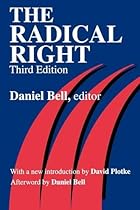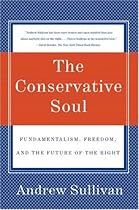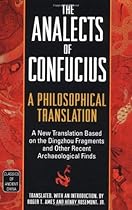 One of Andrew Sullivan's recent threads in The Daily Dish is an attempt to figure out the Tea Party phenomenon. He begins with a New York Times article by philosopher J.M. Bernstein of the New School for Social Research in New York City. Bernstein has argued that Tea Partiers realize deep down that they are dependent on big government, but feel that it has let them down. Recent events have shattered the mutually shared illusion of independence. Their radical reaction to this letdown is compared to a love gone bad. Like a rejected lover, the Tea Partiers are out to prove that they can live without the one upon whom they have become so dependent. It makes a virtue out of what they take to be a broken marriage.
One of Andrew Sullivan's recent threads in The Daily Dish is an attempt to figure out the Tea Party phenomenon. He begins with a New York Times article by philosopher J.M. Bernstein of the New School for Social Research in New York City. Bernstein has argued that Tea Partiers realize deep down that they are dependent on big government, but feel that it has let them down. Recent events have shattered the mutually shared illusion of independence. Their radical reaction to this letdown is compared to a love gone bad. Like a rejected lover, the Tea Partiers are out to prove that they can live without the one upon whom they have become so dependent. It makes a virtue out of what they take to be a broken marriage. While Bernstein's theory has some appeal for Sullivan, he has found an old essay by Richard Hofstadter to be even more helpful. For Sullivan, and for me as well, the Hofstadter piece (which relies heavily on a book by Theodore Adorno entitled The Authoritarian Personality) is mind-boggling in its parallel to today's situation. The essay is found in a book called The Radical Right, which was originally published in 1955, but was re-released with a new introduction by Daniel Bell in 2002. Adorno's study reflected on the radical right of the early McCarthy years. It is paranoid, gullible, inconsistent, and ready to take radical steps to assuage its perpetual fears.
Sullivan reflects on how the Tea Partiers act as if the original Tea Party, and the founders in general, were against all taxation. The truth of the matter is that they were fighting against taxation without representation, but that fact is usually ignored by their propaganda.
 Bernstein's main point is based on an appeal to Hegel. The section on Hegel in Bernstein's article, is well worth reading in its entirety. Hegel, he says, used love as an example of how human beings are granted freedom, and independence, out of an original context of intersubjective (and presumably interdependent) relations. Bernstein says that Hegel taught in The Philosophy of Right that we only become free and independent beings through harmonious love or friendship with others. The freedom is granted due to the value one recognizes and acknowledges in the other. The political right's hostility, says Bernstein, is a result of the sense that this harmonious social accord has been broken.
Bernstein's main point is based on an appeal to Hegel. The section on Hegel in Bernstein's article, is well worth reading in its entirety. Hegel, he says, used love as an example of how human beings are granted freedom, and independence, out of an original context of intersubjective (and presumably interdependent) relations. Bernstein says that Hegel taught in The Philosophy of Right that we only become free and independent beings through harmonious love or friendship with others. The freedom is granted due to the value one recognizes and acknowledges in the other. The political right's hostility, says Bernstein, is a result of the sense that this harmonious social accord has been broken. The Tea Party is also an enigma for me in many ways. Is it possible to be against taxes and for Medicare, Medicaid, and Social Security? Few Tea Partiers will openly acknowledge being against these things. Are they libertarians who denounce all government intervention, even when it comes to the building and maintenance of roads, and the maintenance of an education system? Are they for a powerful military, but against the means of creating one? Are they for the common people, but in fact acting as the main defense of the rich? Are the middle class and poor really helped by a weakened government that may be its only recourse against corporate power and the power of the fabulously rich? So many questions arise with this movement. It often appears that these things have not been thought through well. Sullivan's articles are a good start toward trying to understand the movement.
I'm all for a limited government that runs efficiently. Administrations tend to be self-serving, and grow bloated. But the evidence available to us does not seem to suggest that a completely free market, free from any regulation by a government elected by the people without undue influence by the wealthy corporations it is charged with regulating, will result in a society that is good for anyone but the corporations with the most power. The big banks did not take it upon themselves to limit risk so that we would not be hurt by their gambling. BP did not place limits upon itself to prevent the catastrophe in the Gulf, and it used undue influence in government to get around regulations that were in place.
 From a spiritual point of view, the power of love is indeed central to understanding our relationships in a positive and harmonious manner. It is central to understanding our freedoms and responsibilities. Confucius was amongst those who taught of the importance of spiritual maturity--learning to grow beyond the narrowly focused ego in order to identify and harmonize with family, community, nation, and world. Sometimes our political language becomes imbalanced, overemphasizing either freedom or responsibilities. Spiritual teachers have usually tried to create a balance in most aspects of our lives, and that includes a balance of harmony and freedom. Confucius taught that the core virtue of a good society is Ren, an ability to live harmoniously and respectfully with others.
From a spiritual point of view, the power of love is indeed central to understanding our relationships in a positive and harmonious manner. It is central to understanding our freedoms and responsibilities. Confucius was amongst those who taught of the importance of spiritual maturity--learning to grow beyond the narrowly focused ego in order to identify and harmonize with family, community, nation, and world. Sometimes our political language becomes imbalanced, overemphasizing either freedom or responsibilities. Spiritual teachers have usually tried to create a balance in most aspects of our lives, and that includes a balance of harmony and freedom. Confucius taught that the core virtue of a good society is Ren, an ability to live harmoniously and respectfully with others.
I'm all for a limited government that runs efficiently. Administrations tend to be self-serving, and grow bloated. But the evidence available to us does not seem to suggest that a completely free market, free from any regulation by a government elected by the people without undue influence by the wealthy corporations it is charged with regulating, will result in a society that is good for anyone but the corporations with the most power. The big banks did not take it upon themselves to limit risk so that we would not be hurt by their gambling. BP did not place limits upon itself to prevent the catastrophe in the Gulf, and it used undue influence in government to get around regulations that were in place.
 From a spiritual point of view, the power of love is indeed central to understanding our relationships in a positive and harmonious manner. It is central to understanding our freedoms and responsibilities. Confucius was amongst those who taught of the importance of spiritual maturity--learning to grow beyond the narrowly focused ego in order to identify and harmonize with family, community, nation, and world. Sometimes our political language becomes imbalanced, overemphasizing either freedom or responsibilities. Spiritual teachers have usually tried to create a balance in most aspects of our lives, and that includes a balance of harmony and freedom. Confucius taught that the core virtue of a good society is Ren, an ability to live harmoniously and respectfully with others.
From a spiritual point of view, the power of love is indeed central to understanding our relationships in a positive and harmonious manner. It is central to understanding our freedoms and responsibilities. Confucius was amongst those who taught of the importance of spiritual maturity--learning to grow beyond the narrowly focused ego in order to identify and harmonize with family, community, nation, and world. Sometimes our political language becomes imbalanced, overemphasizing either freedom or responsibilities. Spiritual teachers have usually tried to create a balance in most aspects of our lives, and that includes a balance of harmony and freedom. Confucius taught that the core virtue of a good society is Ren, an ability to live harmoniously and respectfully with others.Recommended books: The Philosophy of Right by G.W.F. Hegel; The Authoritarian Personality by Theodore Adorno; The Conservative Soul by Andrew Sullivan; The Radical Right, ed. Daniel Bell; The New American Tea Party by John M. O'Hara; The Boston Tea Party by Benjamin Woods Labaree; Analects of Confucius
To purchase any of these titles, click on the links above. And please support this blog by making your book, cd, and dvd purchases through Aurora Books (an affiliate of Amazon Books).
No comments:
Post a Comment